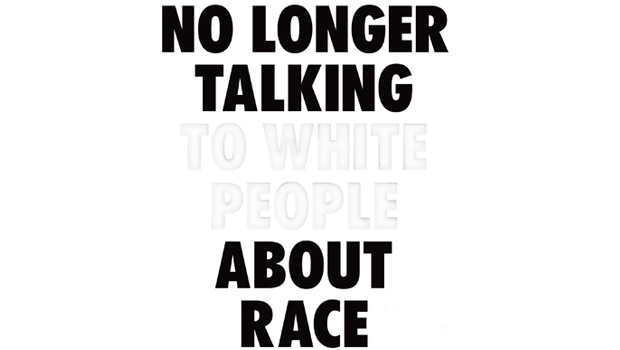
About the book:
In February 2014, Reni Eddo-Lodge wrote about her frustration with the way discussions of race and racism in Britain were constantly being led by those who weren't affected by it. She posted the piece on her blog, and gave it the title: 'Why I'm No Longer Talking to White People about Race'.
Her powerful, passionate words hit a nerve. The post went viral, and comments flooded in from others desperate to speak up about their own, similar experiences. Galvanised by this response, she decided to dig into the source of these feelings; this clear hunger for an open discussion.
The result is a searing, illuminating, absolutely necessary exploration of what it is to be a person of colour in Britain today. Exploring issues from eradicated black history to the political purpose of white dominance, whitewashed feminism to the inextricable link between class and race, Reni Eddo-Lodge offers a new framework for how to see, acknowledge and counter racism.
Excerpt published with permission from Bloomsbury UK publishers and Jonathan Ball publishers.
Neutral is white. The default is white. Because we are born into an already written script that tells us what to expect from strangers due to their skin colour, accents and social status, the whole of humanity is coded as white.
Blackness, however, is considered the ‘other’ and therefore to be suspected. Those who are coded as a threat in our collective representation of humanity are not white.
These messages were so powerful that four-year-old me had already recognised them, watching television, noticing that all the characters who looked like me were criminals at worst, and sassy sidekicks at best.
When I was four, I turned to my mum and asked her when I would turn white, because all the good people on TV were white, and all the villains were black and brown. I considered myself to be a good person, so I thought that I would turn white eventually.
My mum still remembers the crestfallen look on my face when she told me the bad news.
How can I define white privilege?
It’s so difficult to describe an absence. And white privilege is an absence of the consequences of racism. An absence of structural discrimination, an absence of your race being viewed as a problem first and foremost, an absence of ‘less likely to succeed because of my race’.
It is an absence of funny looks directed at you because you’re believed to be in the wrong place, an absence of cultural expectations, an absence of violence enacted on your ancestors because of the colour of their skin, an absence of a lifetime of subtle marginalisation and othering – exclusion from the narrative of being human.
Describing and defining this absence means to some extent upsetting the centring of whiteness, and reminding white people that their experience is not the norm for the rest of us.
It is, of course, much easier to identify when you don’t have it, and I watch as an outsider to the insularity of whiteness. I coveted whiteness once, but I knew in the back of my mind that conning myself into assimilation would only ever make me a poor imitation of what I would never be.
You might be surprised to learn that it was a white man who first gave white privilege a name. Theodore W. Allen was born in Indianapolis, Indiana in 1919. In his adulthood he was active in the trade union movement.
Deeply affected by the American civil rights movement in the 1960s, his reading of black writers like W. E. B. Du Bois led him to start exploring what he called ‘white-skin privilege’.
His was an anti-capitalist perspective on race in the labour movement.
In 1967, riffing on the civil rights movement’s much-used phrase ‘an injury to one is an injury to all’ he wrote ‘... the injury dealt out to the black worker has its counterpart in the privilege of the white worker. To expect the white worker to help wipe out the injury to the Negro is to ask him to oppose his own interests.’
To some, the word ‘privilege’ in the context of whiteness invokes images of a life lived in the lap of luxury, enjoying the spoils of the super- rich.
When I talk about white privilege, I don’t mean that white people have it easy, that they’ve never struggled, or that they’ve never lived in poverty.
But white privilege is the fact that if you’re white, your race will almost certainly positively impact your life’s trajectory in some way. And you probably won’t even notice it.
White privilege is one of the reasons why I stopped talking to white people about race. Trying to convince stony faces of disbelief has never appealed to me.
The idea of white privilege forces white people who aren’t actively racist to confront their own complicity in its continuing existence.
White privilege is dull, grinding complacency. It is par for the course in a world in which drastic race inequality is responded to with a shoulder shrug, considered just the norm.
White privilege is the perverse situation of feeling more comfortable with openly racist, far- right extremists, because at least you know where you stand with them; the boundaries are clear.
The insidious stuff is much harder. You come to expect it, but you can never come to accept it.
You learn to be careful about your battles, because otherwise people would consider you to be angry for no reason at all. A troublemaker, not worth taking seriously, an angry black woman obsessed with race.
Buy a copy of the book from Takealot.com
WATCH: Reni Eddo-Lodge: Why I’m No Longer Talking to White People about Race




 Publications
Publications
 Partners
Partners














